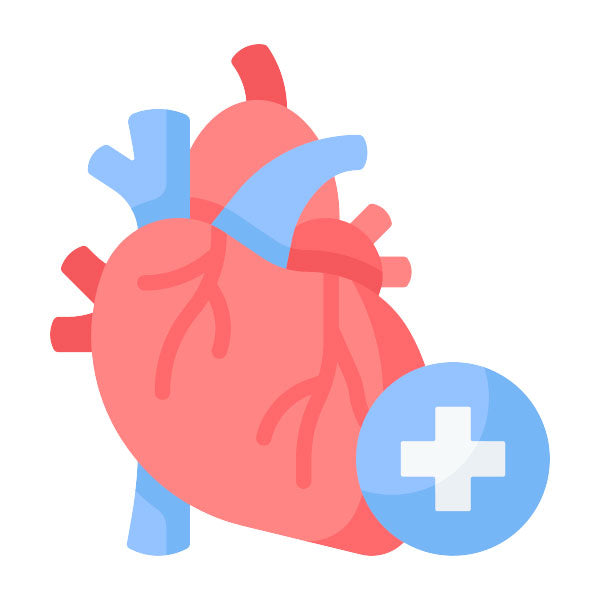WHAT IS VITAMIN D3?
Vitamin D3, scientifically known as cholecalciferol, is a vital fat-soluble vitamin that belongs to the secosteroid family. Remarkably, our bodies can produce Vitamin D3 when exposed to sunlight. Specifically, it is synthesized in the skin in response to ultraviolet B (UVB) rays from the sun.

WHY THE SUNSHINE VITAMIN?
Vitamin D3 is often referred to as "the sunshine vitamin" because your body can produce it when your skin is exposed to sunlight. However, depending solely on sunlight may not provide you with sufficient Vit D3. That's where supplementation comes into play, ensuring you enjoy all the benefits it offers.
BEST NATURAL SOURCES OF VITAMIN D3
SUPPLEMENTATION: ENSURING ADEQUATE VITAMIN D3 INTAKE
The recommended daily intake of Vitamin D3 can vary based on factors such as age, gender, and life stage. However, a general guideline suggests that most adults should aim for 600-800 international units (IU) per day.* This guideline can serve as a starting point, but it's essential to consult with a healthcare provider to determine the appropriate dosage for your specific needs. Factors such as your current Vitamin D3 levels, dietary habits, and exposure to sunlight will influence your required intake.
HEALTH BENEFITS OF VITAMIN D3
SYMPTOMS OF VITAMIN D3 DEFICIENCY
Being aware of the signs that may indicate insufficient levels of Vitamin D3 is essential for maintaining your overall well-being.* Common indicators of inadequate Vitamin D3 levels encompass feelings of tiredness, muscle weakness, discomfort in bones, and susceptibility to various health challenges.* Addressing these symptoms proactively is crucial to support your long-term health.* In cases of prolonged insufficiency, more severe consequences may arise, emphasizing the importance of regularly assessing your Vitamin D3 status.* Consult with your healthcare provider to explore the possibility of monitoring your Vitamin D3 levels through appropriate means.
THE SYNERGY OF VITAMIN D3 WITH OTHER NUTRIENTS

HOW TO GET TESTED FOR VITAMIN D LEVELS
Testing your vitamin D levels is a straightforward process and can provide valuable insights into your health. A blood test, known as a 25-hydroxyvitamin D test, is commonly used to measure vitamin D levels in the body. Depending on the results, your healthcare provider can recommend appropriate steps to address any deficiencies and optimize your vitamin D intake.
VITAMIN D3 FOR DIFFERENT AGE GROUPS AND POPULATIONS
CHOLECALCIFEROL: THE NATURAL FORM OF VITAMIN D3
Cholecalciferol, often found in vitamin D3 supplements, is the naturally occurring form of this nutrient.* Its primary role is to facilitate the absorption of calcium and phosphorus, essential for maintaining strong bones and teeth.* It's known for its superior absorption and effectiveness in raising vitamin D levels in the body.*

VITAMIN D3 TABLETS AND PILLS: WHAT YOU SHOULD KNOW
Vitamin D3 supplements come in various forms, including tablets and pills. Choose a form that suits your preferences and is easy to incorporate into your daily routine. Be sure to follow the recommended dosage instructions.
BEST VITAMIN D3 AND K2 SUPPLEMENT 🥇

Vimerson Health
Vitamin D3 K2 Supplement – All-in-1 Support for Immune, Bone & Heart Health with Vitamin D + Vitamin K (as MK7) – K2 D3 (5000 IU) Vitamin Supplement with Black Pepper for Max Absorption, 60 Capsules









ℹ︎ FREQUENTLY ASKED QUESTIONS ABOUT VITAMIN D3
WHAT VITAMIN D3 IS GOOD FOR?
Vitamin D3, also known as cholecalciferol, is essential for several bodily functions.* It's crucial for the absorption and regulation of calcium and phosphorus, playing a significant role in maintaining bone and muscle health.* Adequate levels of Vitamin D3 support immune system function and might influence mood regulation.* It's naturally obtained through sunlight exposure and can be supplemented through diet or vitamin D3 supplements, especially in regions with limited sun exposure.*
IS IT OK TO TAKE VITAMIN D3 EVERYDAY?
Taking Vitamin D3 daily is generally considered safe and beneficial, especially for individuals with limited sun exposure or dietary intake of Vitamin D.* The recommended dosage for Vitamin D3 varies based on individual needs, age, and existing Vitamin D levels.* It's important to maintain Vitamin D3 within normal levels, as excessive intake can lead to adverse effects.* Regular monitoring and consulting healthcare guidelines for optimal dosing is advisable.*
WHO NEEDS TO TAKE VITAMIN D3?
Individuals who may benefit from Vitamin D3 supplements include those with limited sun exposure, older adults, people with darker skin (as melanin reduces skin's ability to produce Vitamin D from sunlight), and individuals on vegan or vegetarian diets that lack natural dietary sources of Vitamin D.* Also, those living in higher latitudes or areas with long winters may require supplementation due to reduced sunlight.* Regular monitoring of Vitamin D levels can help determine the need for supplementation.*
WHAT'S THE DIFFERENCE BETWEEN VITAMIN D AND D3?
Vitamin D is a broad term referring to a group of fat-soluble secosteroids responsible for increasing intestinal absorption of calcium, magnesium, and phosphate.* Among these, Vitamin D3, also known as cholecalciferol, is naturally synthesized in the skin through exposure to sunlight.* D3 is more effective at raising and maintaining overall Vitamin D levels in the body compared to other forms like Vitamin D2 (ergocalciferol), typically found in plant-based sources.*
SHOULD I TAKE VITAMIN D3 MORNING OR NIGHT?
Taking Vitamin D3 in the morning is generally recommended. This is because Vitamin D3, being a fat-soluble vitamin, may interfere with sleep if taken at night.* Morning doses align better with the body's natural daytime processing of sunlight into Vitamin D.* Additionally, it's best to take it with a meal containing fat for optimal absorption, as this enhances its bioavailability.*
HOW LONG SHOULD I USE VITAMIN D3?
The duration of Vitamin D3 supplementation varies based on individual needs and baseline vitamin D levels.* Generally, it's taken long-term to maintain optimal vitamin D status, especially in people with limited sun exposure.* A healthcare provider can provide guidance on the appropriate duration, often based on periodic blood tests to monitor vitamin D levels.* Consistency and adherence to the recommended dosage are key for effective results.*
WHAT ARE THE SYMPTOMS OF A VITAMIN D3 DEFICIENCY?
Symptoms of Vitamin D3 deficiency can be subtle or non-specific, making it challenging to diagnose based solely on symptoms. Common signs include fatigue, bone discomfort, muscle weakness or cramps, mood changes, and an overall feeling of not being well.* In more severe cases, it can lead to bone softening or fragility.* It's important to monitor these symptoms, especially in individuals with limited sun exposure or dietary intake of Vitamin D3.*
HOW SOON WILL I FEEL BETTER AFTER TAKING VITAMIN D3?
The time it takes to feel better after starting Vitamin D3 supplementation can vary based on individual factors like the level of deficiency and overall health.* Generally, some individuals may start noticing improvements in symptoms like fatigue and general well-being within a few weeks of consistent supplementation.* However, it's important to maintain regular intake as directed and understand that some benefits, particularly those related to bone health, may take longer to manifest.*
WHAT IS THE SAFEST AMOUNT OF VITAMIN D3 TO TAKE DAILY?
The safest amount of Vitamin D3 to take daily varies based on individual needs, but generally, for most adults, a dose of 600-800 IU (15-20 micrograms) per day is often recommended.* However, some individuals may require higher doses, especially if they have lower blood levels.* The upper safe limit is typically considered to be 4000 IU (100 micrograms) per day.* It's important to tailor the dosage to individual health needs and consider factors like sun exposure, dietary intake, and specific health conditions.*
WHAT IS THE MAXIMUM VITAMIN D3 PER WEEK?
The maximum safe dosage of Vitamin D3 per week can vary, but a common upper limit is around 10,000 IU (250 micrograms) per week.* This dosage is generally considered safe for most adults, though individual needs may vary.* It's important to note that exceeding this amount without medical supervision could lead to adverse effects. The appropriate dosage can depend on factors like individual health status, sun exposure, and dietary intake. Regular monitoring of blood levels is advisable when taking higher doses.
* These statements have not been evaluated by the Food and Drug Administration. This product is not intended to diagnose, treat, cure, or prevent any disease.
























